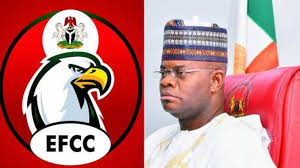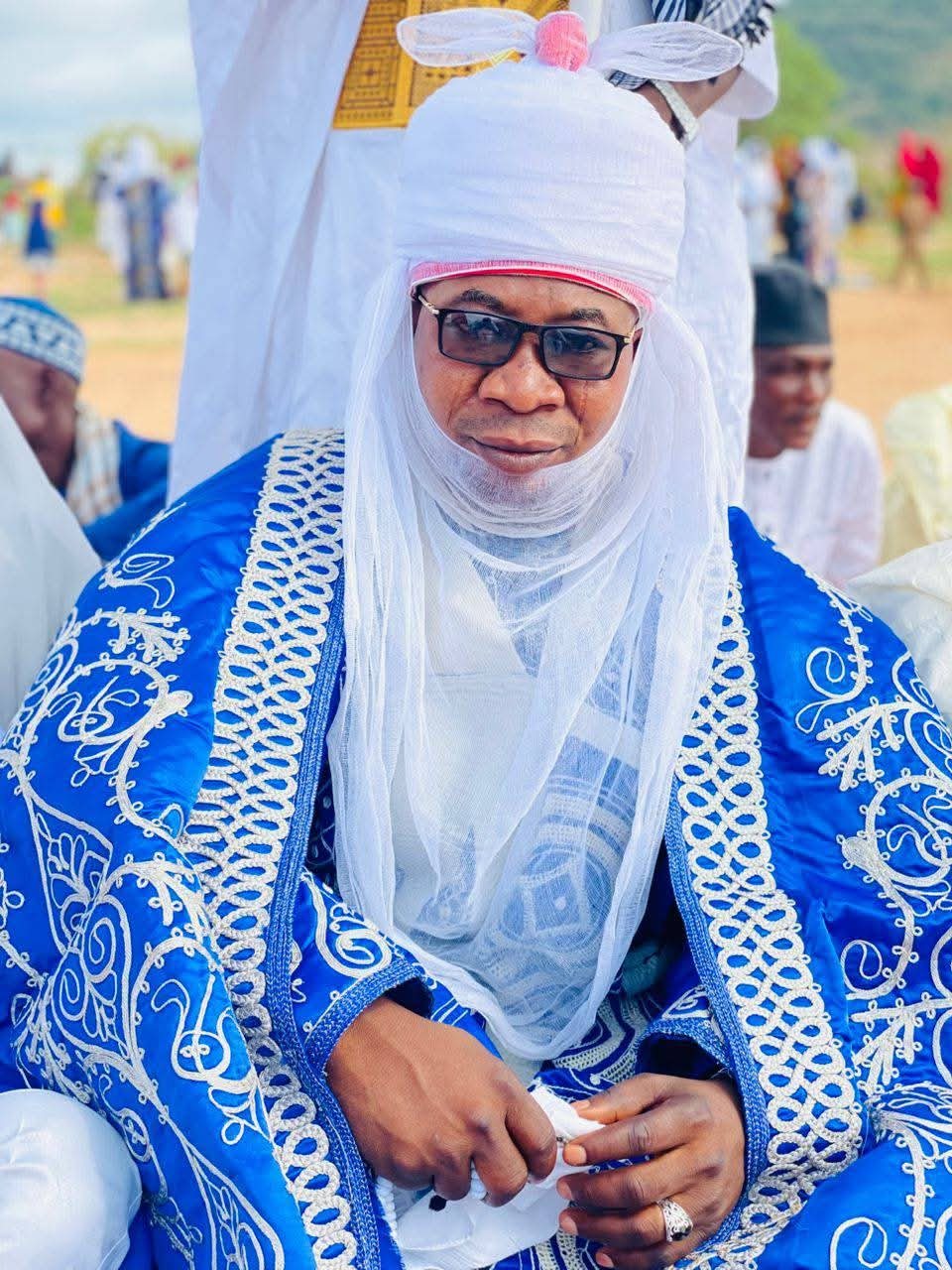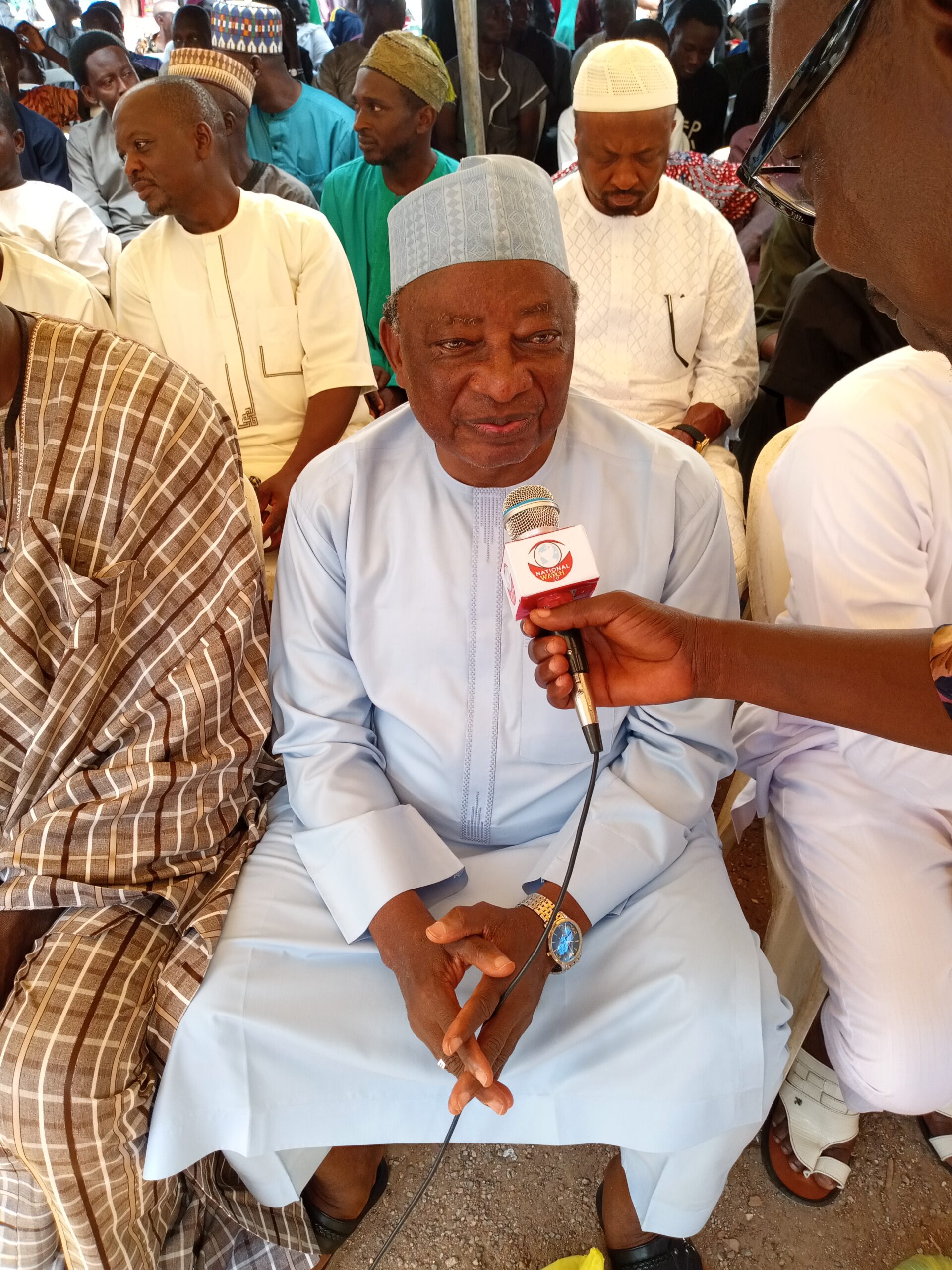By Seun Johnson
It is tragically unexplainable and sadly depressing especially at this distressing time in the annals of Nigeria’s history, to witness how the Economic and Financial Crimes Commission, (EFCC) has turned the country into a theatre of the absurd in an attempt to prove to Nigerians that it’s fighting corruption.
In the last two weeks, the anti-graft agency has dominated the news headlines with its reckless management of corruption allegations against the immediate past governor of Kogi State, Alhaji Yahaya Bello, eliciting an avalanche of controversies, criticisms, and condemnation across the country.
The ongoing drama between the Commission and the ex-Kogi governor has further raised disturbing questions that bother on the professionalism, competence, and capacity of the Federal Government’s agency officials in discharging their duties, especially in the pursuit of corruption charges against high-profile Nigerians.
Yahaya Bello, a two-term governor of Kogi State is currently swimming in a river of EFCC’s recklessness and unprofessional conduct of its men in what is perceived as a fight against corruption in Nigeria. The anti-graft agency had on Thursday, March 14 named the former governor as a co-conspirator in an alleged sleaze. The commission accused Bello of conspiring with his nephew and others to convert Kogi State’s N80 billion to their personal use.
His name was mentioned during the re-arraignment of his nephew, Ali Bello, and a co-defendant for money laundering at the Federal High Court in Abuja. The anti-graft agency had amended the charges against the younger Bello and his co-defendant, Dauda Suleiman on February 5th, raising the number of counts from 10 to 17 in a trial that started in 2022.
The EFCC In Count 1 of the amended charges, accused the former Governor of conspiring with Ali Bello, Dauda Suleiman, and Abdusalam Hudu in September 2015 to convert over N80 billion belonging to Kogi State to their personal use. EFCC also said in the count that the former governor and Mr Hudu remained at large.
What however remained unclear and yet to be established is how the commission was able to link Yahya Bello with the charges, having been elected in December 2015 and sworn in on January 27, 2016. Until he took over the helm of Kogi State affairs in 2016, former governor Bello remained an ordinary Nigerian who had no immunity and could have been arrested, and made to face trial. This is the nagging question begging for an answer from the Commission.
A few weeks after completing his tenure, the EFCC was quick to alert Nigerians about the invitation sent to Bello to appear at its Abuja office for questioning on the money laundering allegation. The agency in a statement released and published on National Dailies, claimed that the former Governor has practically refused to turn himself up for interrogation.
The damning statement turned Bello into an object of mockery and the butt of jokes on social media with many Nigerians expressing surprise at the so-called action of the former governor whose political bravery has earned him the sobriquet: “the White Lion.”
Responding to the development, the media office of the former governor maintained that at no time did the EFCC extend a letter of invitation for him to appear at its office. In a statement signed by Ohiare Michael, Bello’s media office said the anti-graft agency declared the former governor wanted without sending an invitation to him. In other words, Bello was invited by the commission through the pages of newspapers.
Still holding on to his alleged refusal to honour the summons, the EFCC sent a horde of its ruthless operatives to track the former governor to his Abuja residence on April 18, besieged Benghazi Street, Wuse, and sealed up the entire area like a Nazi concentration camp.
Left for the intervention of his successor, Governor Usman Ododo who coincidentally visited him at the time and doused the tension, Bello and the entire residents of the street would have become objects of emotional trauma, psychological torture, and physical disorientation in the hands of EFCC officials who have consistently displayed their professional somersault and ethical bankruptcy in the fight against corruption in Nigeria.
Disturbed by Governor Ododo’s visit which led to their botched plan, the EFCC on Thursday, April 18 publicly declared former governor Bello wanted. In a public notice posted on its official Facebook page, the Commission wrote: “The public is hereby notified that Yahaya Adoza Bello (former Governor of Kogi State), whose photograph appears above, is wanted by the Economic and Financial Crimes Commission in connection with an alleged case of Money Laundering to the tune of N80,246,470,089.88
“Bello, a 48-year-old Ebira man, is a native of the Okenne Local Government of Kogi State. His last known address is: 9, Benghazi Street, Wuse Zone 4, Abuja.”
The notice asked anybody with useful information about the former governor’s whereabouts to contact any of the commission’s offices across the country.
The decision to declare the former governor wanted and breathe negative vibes towards him has continued to evoke a flurry of angry responses from many Nigerians and civil society groups who decried the anti-graft agency’s mode of operation.
However, this latest show of brigandage by the commission did not come to many Nigerians as a surprise. As a matter of fact, it is a trend that has continually defined the operation of the anti-graft agency. From the days of Mallam Nuhu Ribadu to the present time of Ola Olukoyede, the Economic and Financial Crimes Commission which was established in 2003, has been seen as a toothless bulldog whose only weapon of fighting corruption is to engage in media trials.
The likes of former Petroleum Minister, Allison Maduekwe-Deziani, Bola Ahmed Tinubu of Lagos, Abdulaziz Yari of Zamfara, Bukola Saraki of Kwara, Godswill Akpabio of Cross River, Theodor Orji of Abia, Tanko Al-Makura of Nasarawa, Abdulfatah Ahmed of Kwara, Aliyu Wamakko of Sokoto, Ali Modu Sheriff of Borno and a host of others who once had an axe to grind with EFCC have walked through the path of media trial and their cases were eventually forgotten. It is therefore certain that Bello’s case may tilt towards that path. But must EFCC continue to expose its irresponsibility and incompetence and ridicule the entire country in the comity of other countries in the world?
Don’t get it twisted, Yahaya Bello is not a saint. As a former governor whose tenure meant different things to different people, especially, the residents of Kogi State, Bello is liable for investigation, arrest, and prosecution by the anti-graft agency. However, the hollow ritual of media trials meted on the former governor has further confirmed the self-destruction path EFCC has been toeing since it came on board.
The process of investigating and prosecuting a corrupt public officer is clear. No country in the world subjects its citizens to prosecution, and public embarrassment and declares them criminals on the pages of newspapers or TV screens for an offense that is still under investigation or in view before the court of competent jurisdiction. EFCC has used this tactic to send a wrong signal to the international community about Nigeria’s seriousness in the fight against corruption.
It is laughable for EFCC to invade a private resident of Ex-Governor Bello and attempt to forcefully arrest him for not responding to an invitation that was served on the pages of newspapers. It is more laughable for the commission to declare him wanted simply because of its failed attempt to arrest him at his residence. EFCC’s action offends the sensibility of Nigerians. It speaks volumes of unprofessionalism and incompetence of provocative proportions. Where is the place of due diligence? Where is the place of expertise on the part of the anti-graft agency?
Considering his antecedents, one would have thought the arrival of Ola Olukoyede would map out a better strategy for the commission in dealing with matters of this magnitude and inject a breath of professionalism into the system. But Yahaya Bello’s case has further confirmed that EFCC, like a crocodile, irrespective of how long it spends in the river cannot wash off its scaly skin. After twenty-one years of its creation to stamp out corruption in Nigeria, EFCC remains a tool for media trial and persecution of perceived enemies of the government of the day while the corrupt politicians walk freely on the streets.
The harassment and maltreatment of former governor Yahaya Bello has brought to the fore the sad reality of what EFCC stands for in Nigeria.
Seun Johnson, a journalist and Media Strategist writes from Lagos












